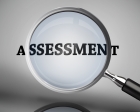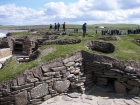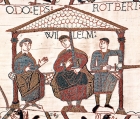Progression & Assessment
Monitoring children’s progression in history and planning for assessment in this subject is vital. These processes ensure that children’s attainment in history is examined by teachers which enable them to help children make progress in history. Read more
Sort by:
Date (Newest first) | Title A-Z
Show:
All |
Articles |
Podcasts |
Multipage Articles
-

Effective implementation in primary history
ArticleClick to view -

Subject leader’s site: assessment and feedback
ArticleClick to view -

It worked for me: investing in dialogue as a tool for assessment
ArticleClick to view -

Assessment and feedback in history
ArticleClick to view -

Tracking pupil progress
ArticleClick to view -

Whole-school planning for progression
ArticleClick to view -

KS1: Teaching about significant individuals
ArticleClick to view -

The importance of history vocabulary
ArticleClick to view -

From Home to the Front: World War I
ArticleClick to view -

Assessment and Progression without levels
ArticleClick to view -

Using 'Development Matters' in the Foundation stage
ArticleClick to view -

Implementing the 2014 curriculum in Year 2
ArticleClick to view -

Progression from EYFS to Key Stage 3
ArticleClick to view -

Assessment in Primary History - Guidance
Multipage ArticleClick to view -

Progression & Assessment without Levels - Guide
Multipage ArticleClick to view -

Chronology: Developing a coherent knowledge
ArticleClick to view -

Why stories?
ArticleClick to view -

The Great Fire of London and the National Curriculum
ArticleClick to view -

Progression and coherence in history
ArticleClick to view -

Monitoring, assessment, recording and reporting
ArticleClick to view

